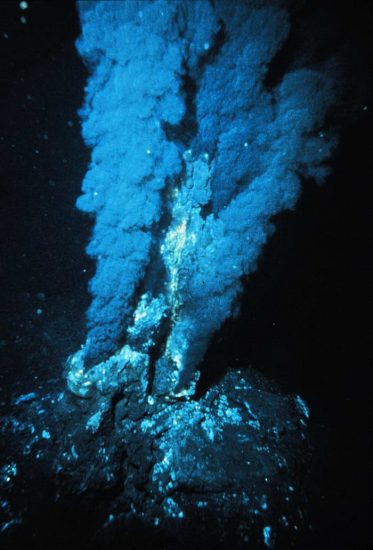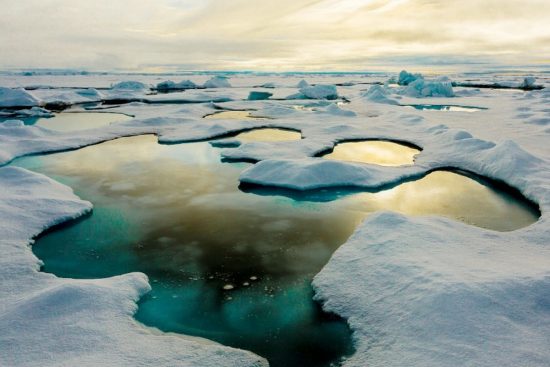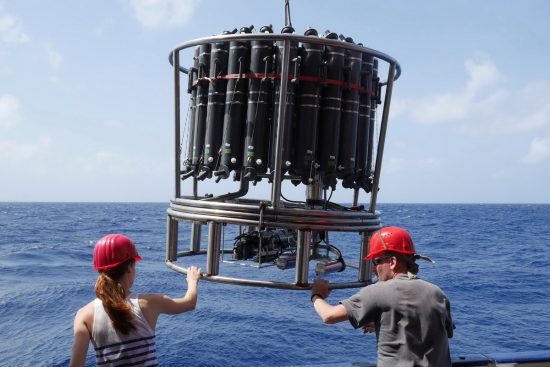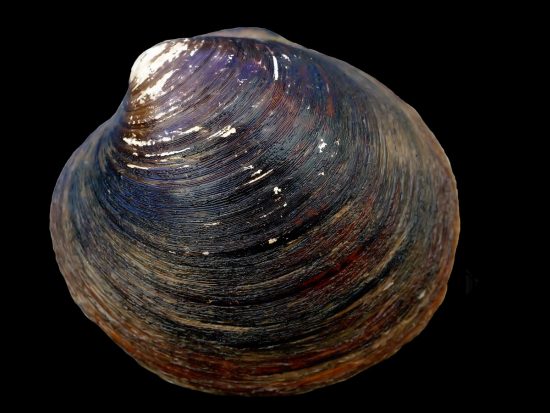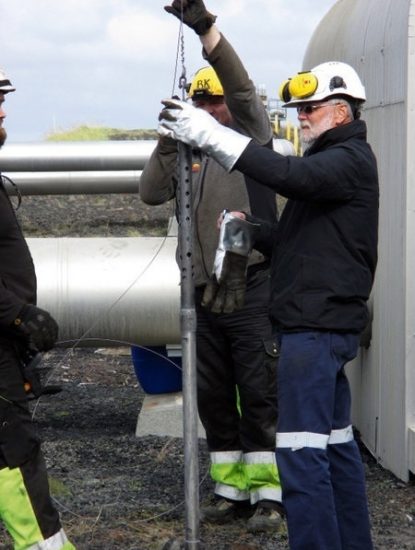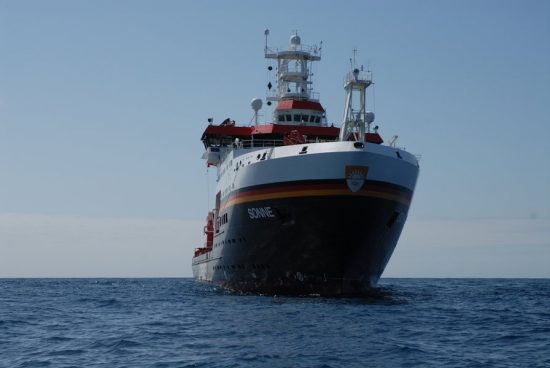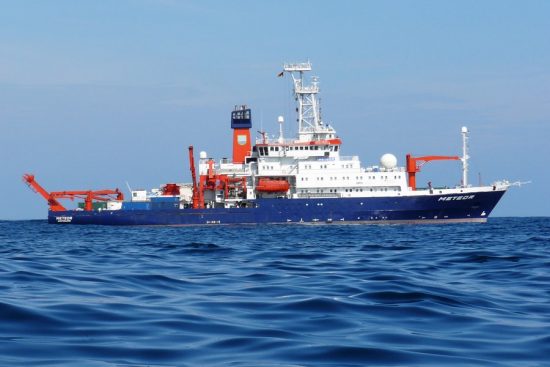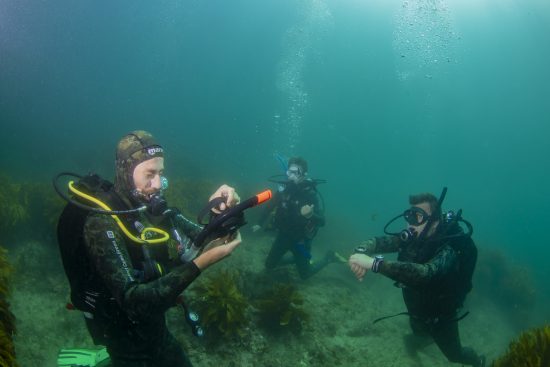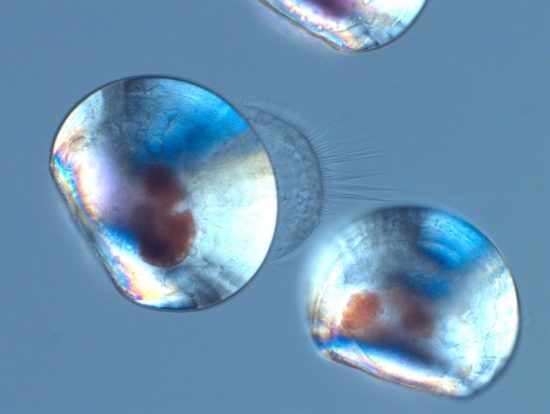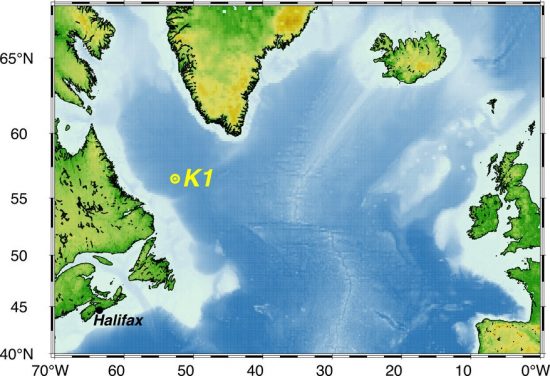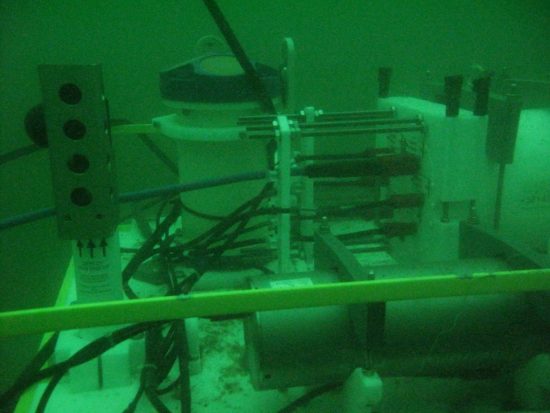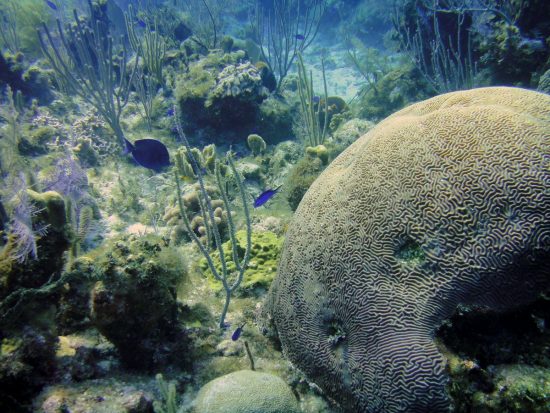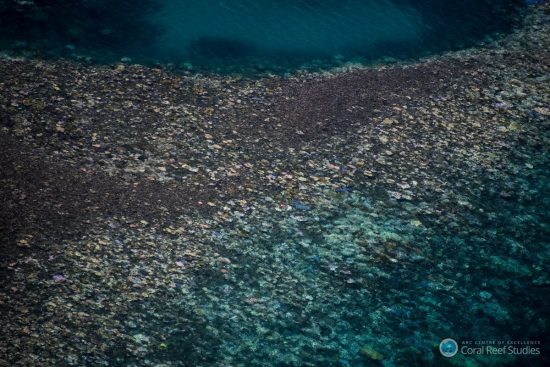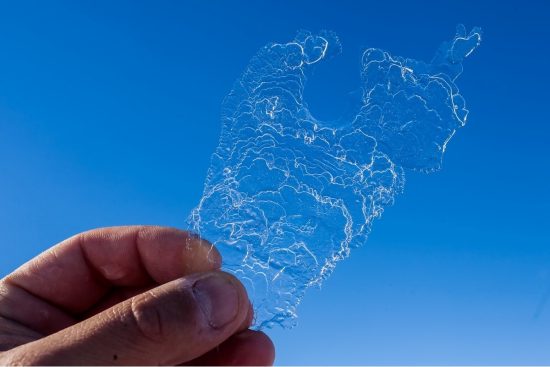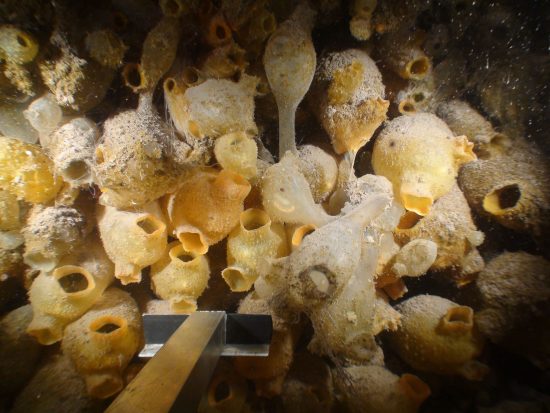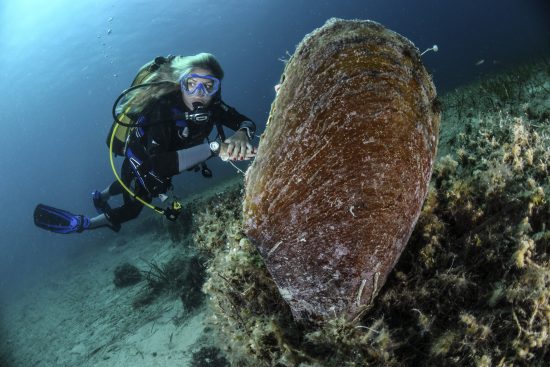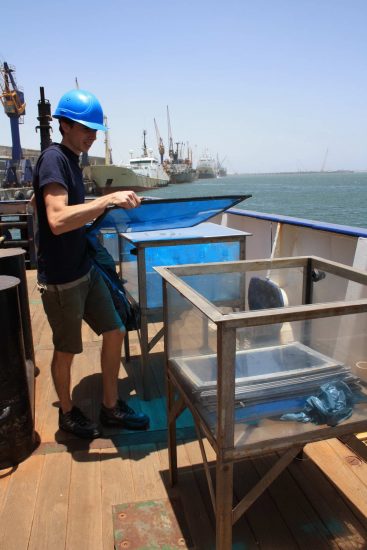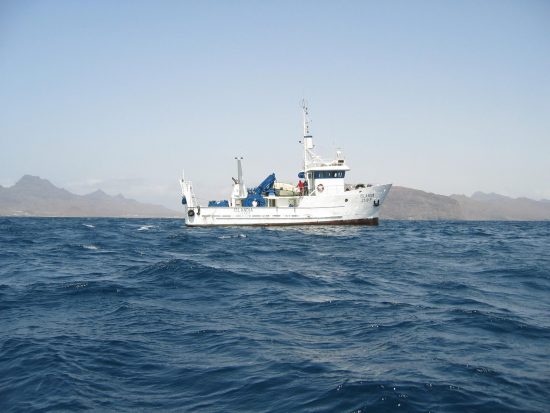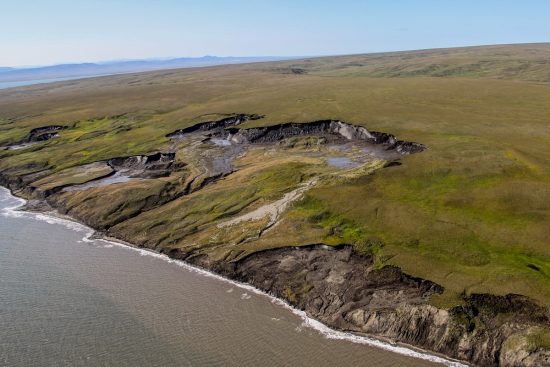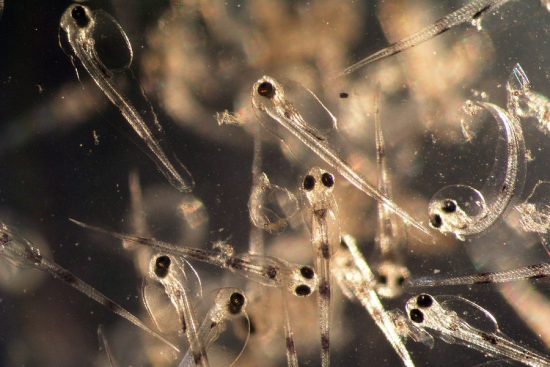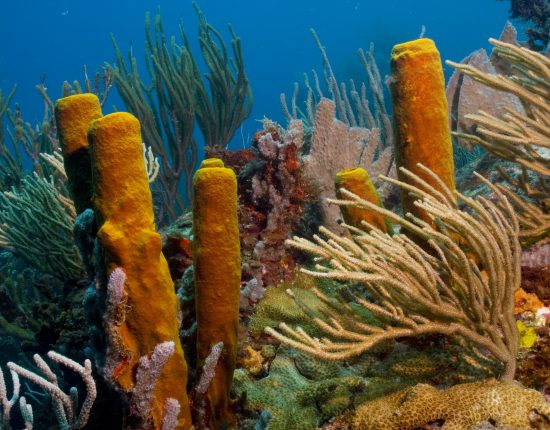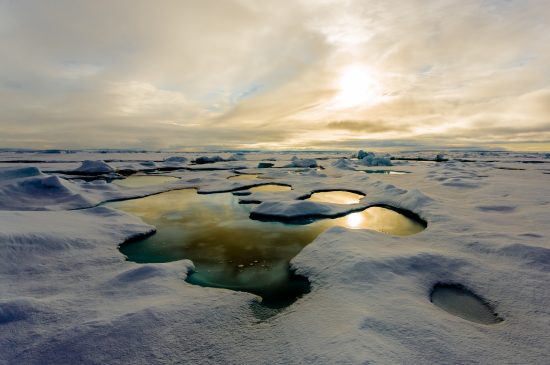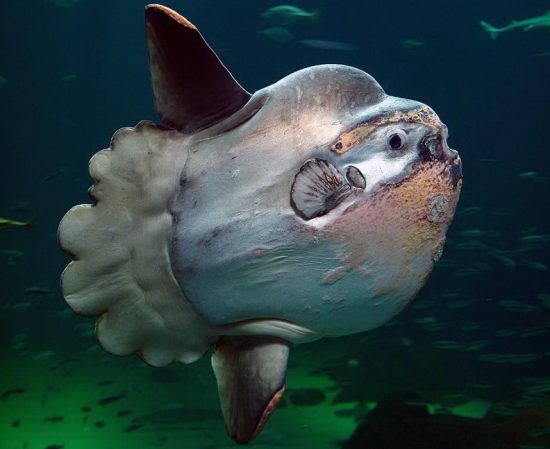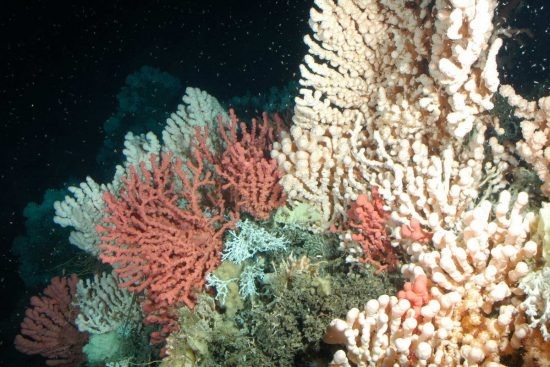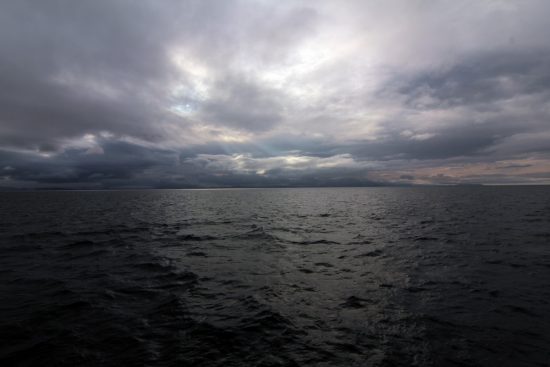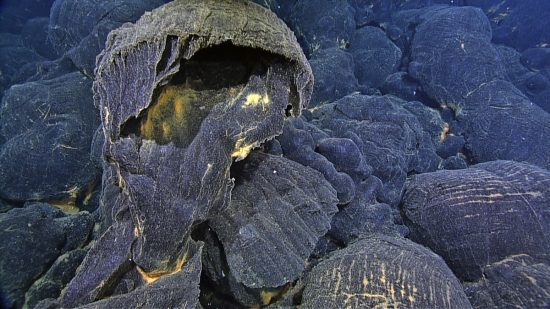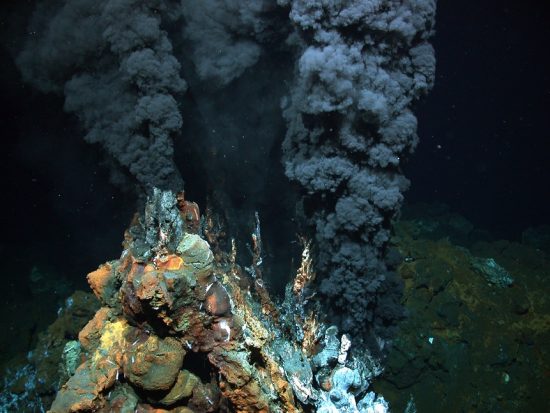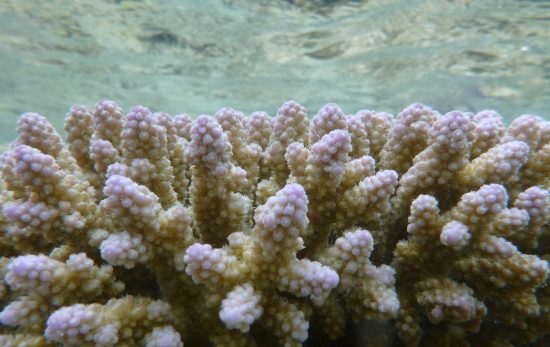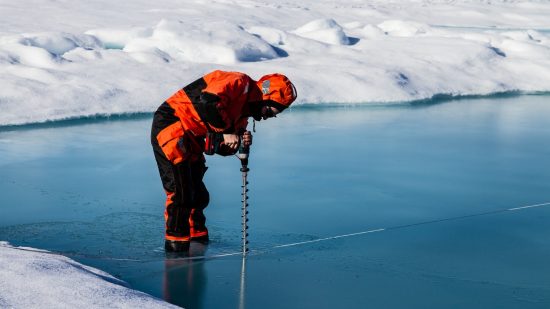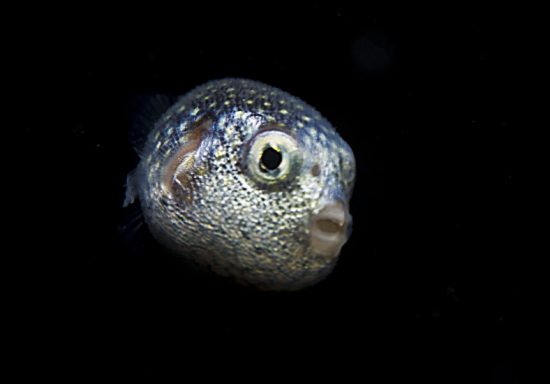
Seawater cools upper layers of earth’s crust
by Herbert - 29th November 2017
Seawater penetrates much deeper than expected How deep can seawater penetrate through cracks and fissures into the seafloor? Using a…
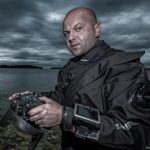
Freediving – Marjan Radovic photographs Tijana Nikolic
by Marjan Radovic - 4th September 2019
Freediving is an activity as old as humanity itself. More than any other sport, freediving is based on subconscious reflexes…

Increase in melting sea ice may lead to higher food supply in Arctic
by Herbert - 26th September 2017
In the Arctic, melt ponds are formed every year when snow and sea ice melt at the end of winter.…

Iron deficiency inhibits marine microbes
by Herbert - 26th May 2017
Scientists discover important process in nutrient cycle in tropical North Atlantic Iron has been identified as an important nutrient for…

Clam shells used to compile 1,000 yr record of ocean climate
by Herbert - 19th December 2016
As a postdoctoral researcher at Bangor University in Wales from 2007 to 2009, Alan Wanamaker started the compilation of a…
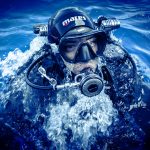
Pipefish give birth to conjoined twins
by Mares - 27th June 2016
Extremely rare to have two conjoined twins within 24 hours During a routine experiment, researchers at GEOMAR Helmholtz Centre for…

High concentrations of gold found in Iceland’s geothermal systems
by Mares - 25th February 2016
On Iceland's Reykjanes peninsula, marine scientists found themselves prospecting for gold when they discovered very high concentrations of gold in…

Can a deep-sea ecosystem recover from human intervention?
by Mares - 26th November 2015
What would the ecological consequences be if the quantity of polymetallic (e.g. manganese) nodules in the deep sea was reduced? Would…

Nitrous Oxide From The Sea
by Mares - 26th June 2015
Kiel marine scientists have discovered that the South-East Pacific region has been emitting more nitrous oxide levels than previously expected.…
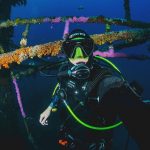
Easing back into scuba diving
by Dan - 12th October 2021
At last, I'm back! I'm sure it's the same for many of you, the lockdown has been incredibly tough. Days,…

Ocean acidification affects mussels in early life stages
by Herbert - 11th January 2018
Marine scientists show impact of acidification on mussel larvae Shells have a hard, calcareous shell to protect themselves against environmental…

Researchers measure unusually high oxygen uptake in the Labrador Sea
by Herbert - 13th September 2017
Ocean taking a deep breath? Stormy, rough and very cold: these characteristics of the Labrador Sea may initially seem uncomfortable,…

New ocean measuring station at Boknis Eck
by Mares - 1st February 2017
GEOMAR and Helmholtz Center Geesthacht install new sensor node in Baltic Sea Boknis Eck (Boknis Corner) – a name familiar…

Environmental factors, not just climate change, can also affect isotopic composition of corals
by Mares - 28th September 2016
Important details found in calcium carbonate skeletons of corals The calcium carbonate skeletons of corals retain important details about their…

Coral reefs can condition themselves against coral bleaching
by Mares - 19th April 2016
The Great Barrier Reef is currently experiencing coral bleaching on an unprecedented scale, and scientists have voiced much concern about…

Researchers measure platelet ice beneath Antarctic sea ice
by Mares - 8th February 2016
For the first time, sea ice physicists at the Alfred Wegener Institute (AWI) have developed a new method of efficiently…

Melting coastal glaciers cause loss in biodiversity – Seabed ecosystem affected by sedimentation
by Mares - 20th November 2015
Melting glaciers will lead to a reduction of species biodiversity among the benthos (bottom-dwelling organisms) community in the coastal waters…

Will the noble pen shell go extinct?
by Ivana and Janez - 8th October 2020
The noble pen shell is one of the most attractive clams of the Mediterranean. It’s a diver’s joy to stumble…

Nutrient Mix enables phytoplankton to flourish
by Herbert - 6th November 2017
Combination of nutrients is necessary to promote plankton growth For the food webs in the ocean and processes such as…

Low-oxygen eddies in Atlantic produce greenhouse gases
by Herbert - 28th July 2017
International researchers discover previously unknown processes In 2014, an international research team led by the Kiel Cluster of Excellence “The…

Studying the effects of coastal erosion in the Arctic
by Mares - 18th January 2017
The thawing and erosion of the arctic permafrost coasts has increased so drastically in the past that more than 20…

Ocean acidification puts cod larvae in Atlantic under threat
by Mares - 27th August 2016
Population of cod has come into increasing pressure The increased acidification of the ocean may lead to twice as many…

Severe coral bleaching hits Great Barrier Reef
by Mares - 30th March 2016
Some recent surveys have shown how the rising temperature of the seawater has led to severe coral bleaching at Australia's…

Melosira Arctica named algae species of 2016
by Mares - 19th January 2016
Researchers have named the Melosira arctica, one of the major algae species in the Arctic Ocean, as Algae of the…

Biology: Sunfish
by Herbert - 1st September 2015
Floating "Millstones" In The Ocean? At first glance, these curious-looking fish look like gigantic fish heads without a body. They…

Jellyfish Dance
by Marjan Radovic - 12th November 2019
Nowadays, jellyfish can be found all over the Adriatic. Though they may have an attractive appearance, jellyfish should be treated…

Scientists present research results on ocean acidification
by Herbert - 31st October 2017
Ocean acidification and warming affect life in the sea In November 2017, the final phase of the German research association…

Glacial retreat accelerated by meltwater lakes under Antarctic Ice Sheet
by Herbert - 4th July 2017
During the last glacial period, the ice in the Antarctic was thicker and extended farther offshore than it does today.…

Map of seafloor shows new details about 2015 eruption at Axial Seamount
by Mares - 29th December 2016
The Axial Seamount, an underwater volcano about 470 kilometres off the Oregon coast, is one of the world's most active…

Exploring hydrothermal vents at Azores archipelago
by Mares - 23rd July 2016
Researchers investigate hydrothermal vents on research vessel's 30th anniversary cruise Welcome to the world of the hydrothermal vents, where organisms…

Ocean acidification slows down coral reef growth
by Mares - 17th March 2016
By manipulating the seawater chemistry of a reef to study how excess carbon dioxide caused by human activity affects coral…

Arctic sea ice plays essential role in methane cycle
by Mares - 8th December 2015
Study uncovers link between seasonal melting of sea ice and release of methane gas The ice-covered Arctic Ocean plays a…

Palau: Dive Right Into The Darkness
by Herbert - 18th August 2015
Blackwater Diving – Diving Into The Pitch Black If you're feeling bored by the usual dives and are looking for…





